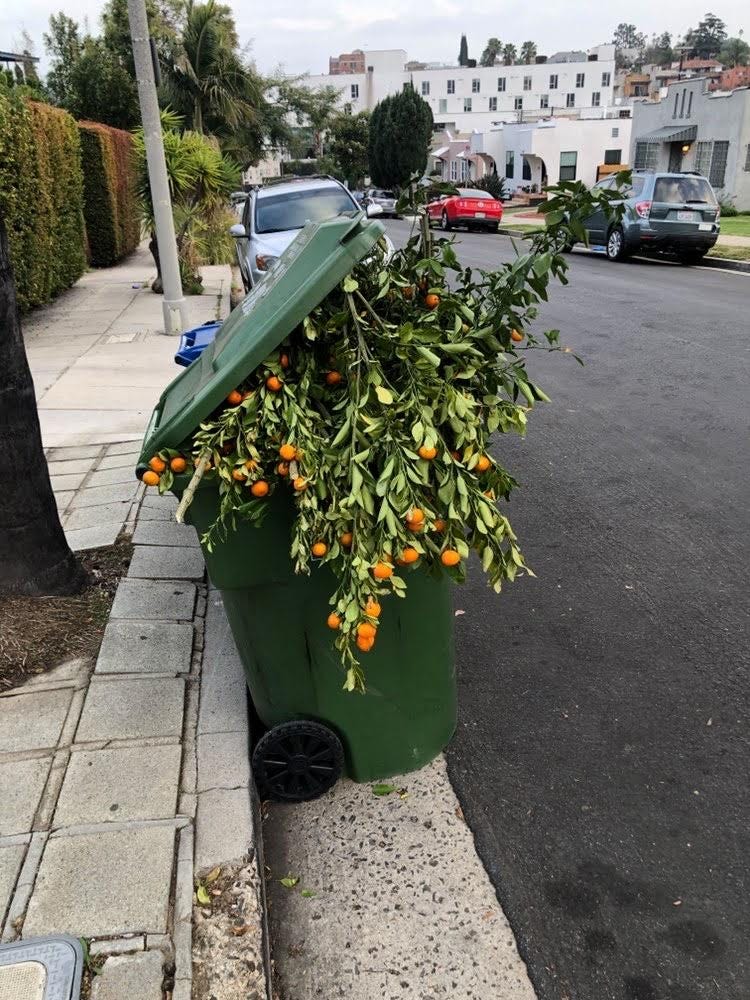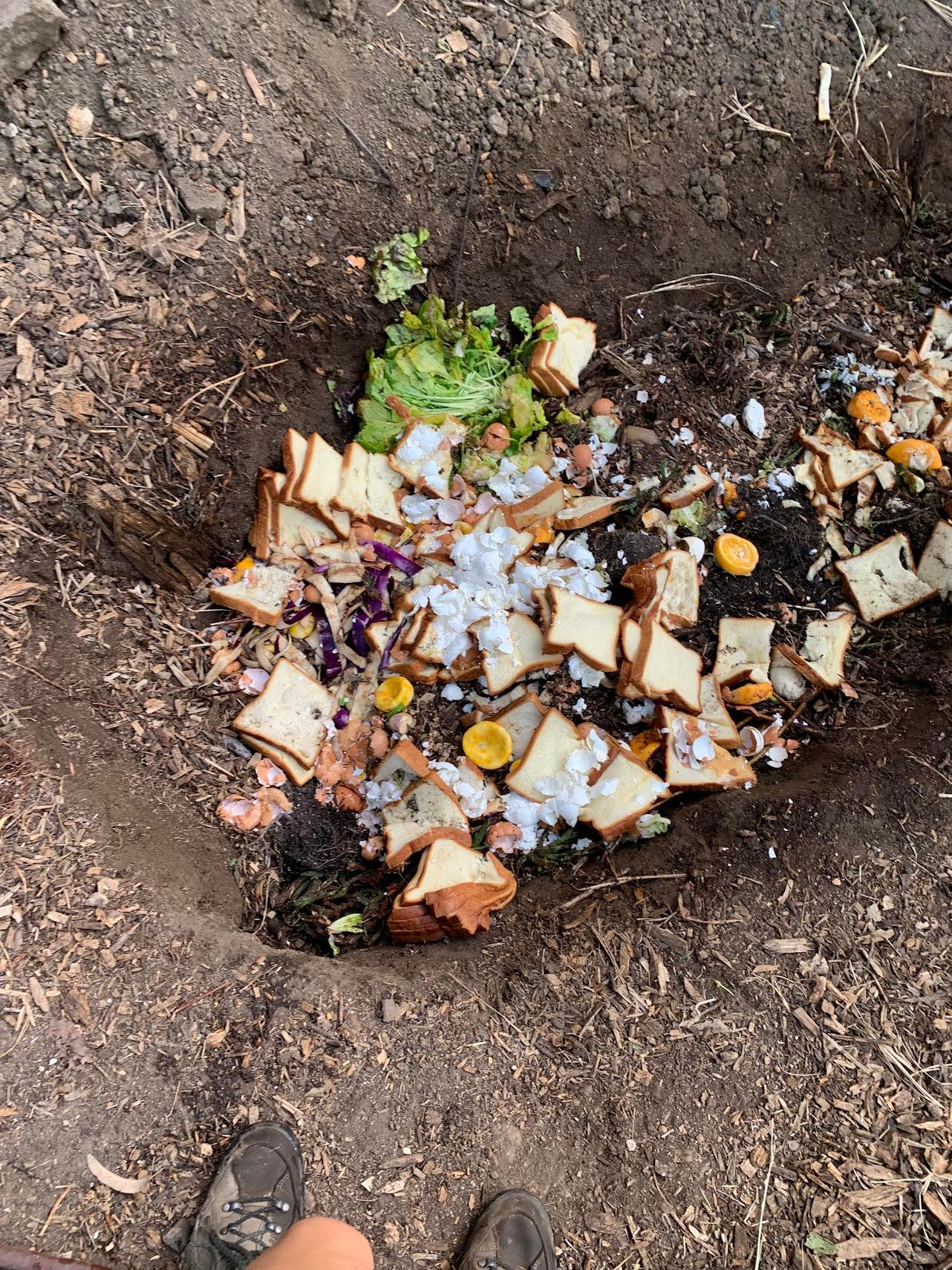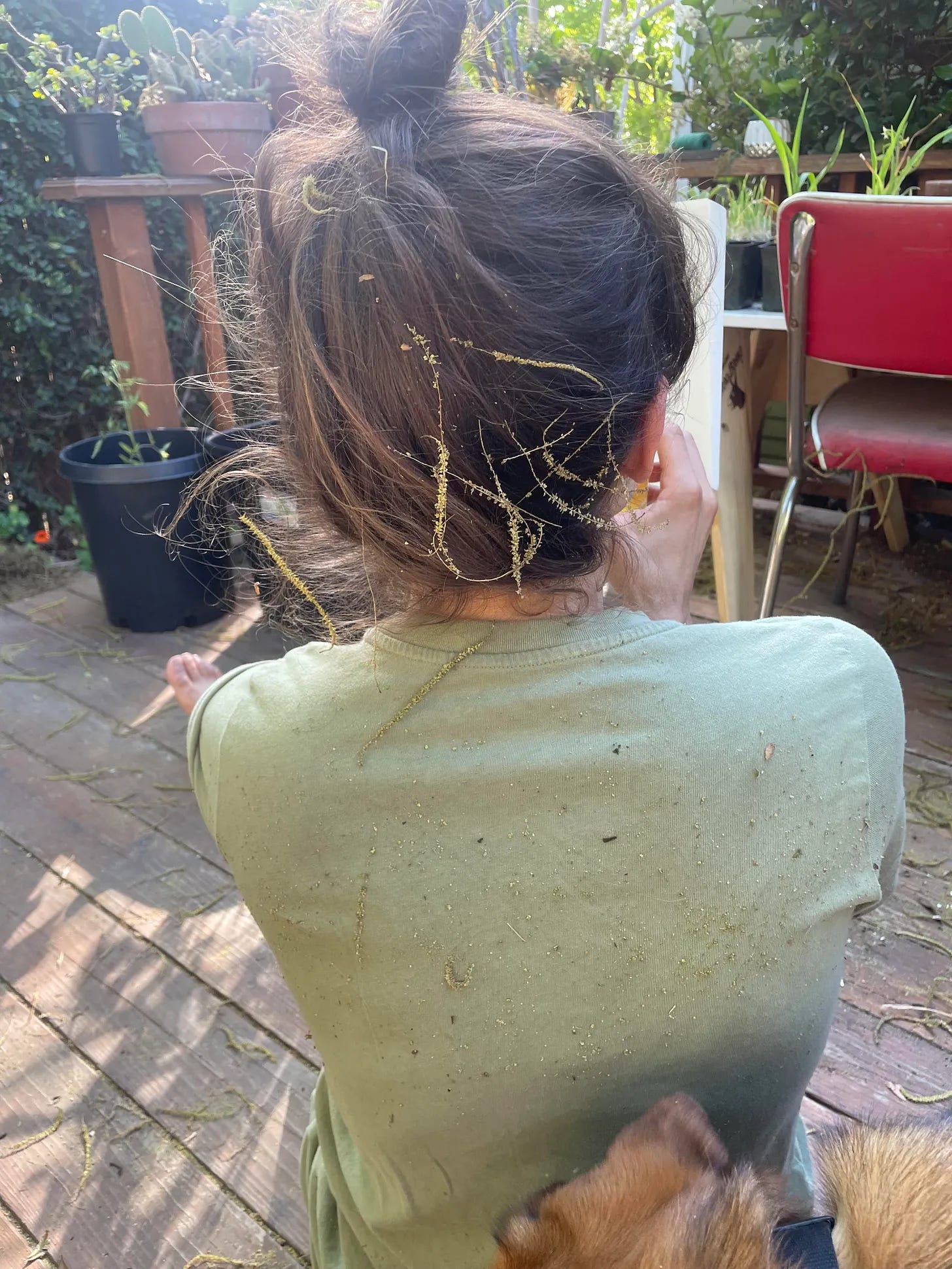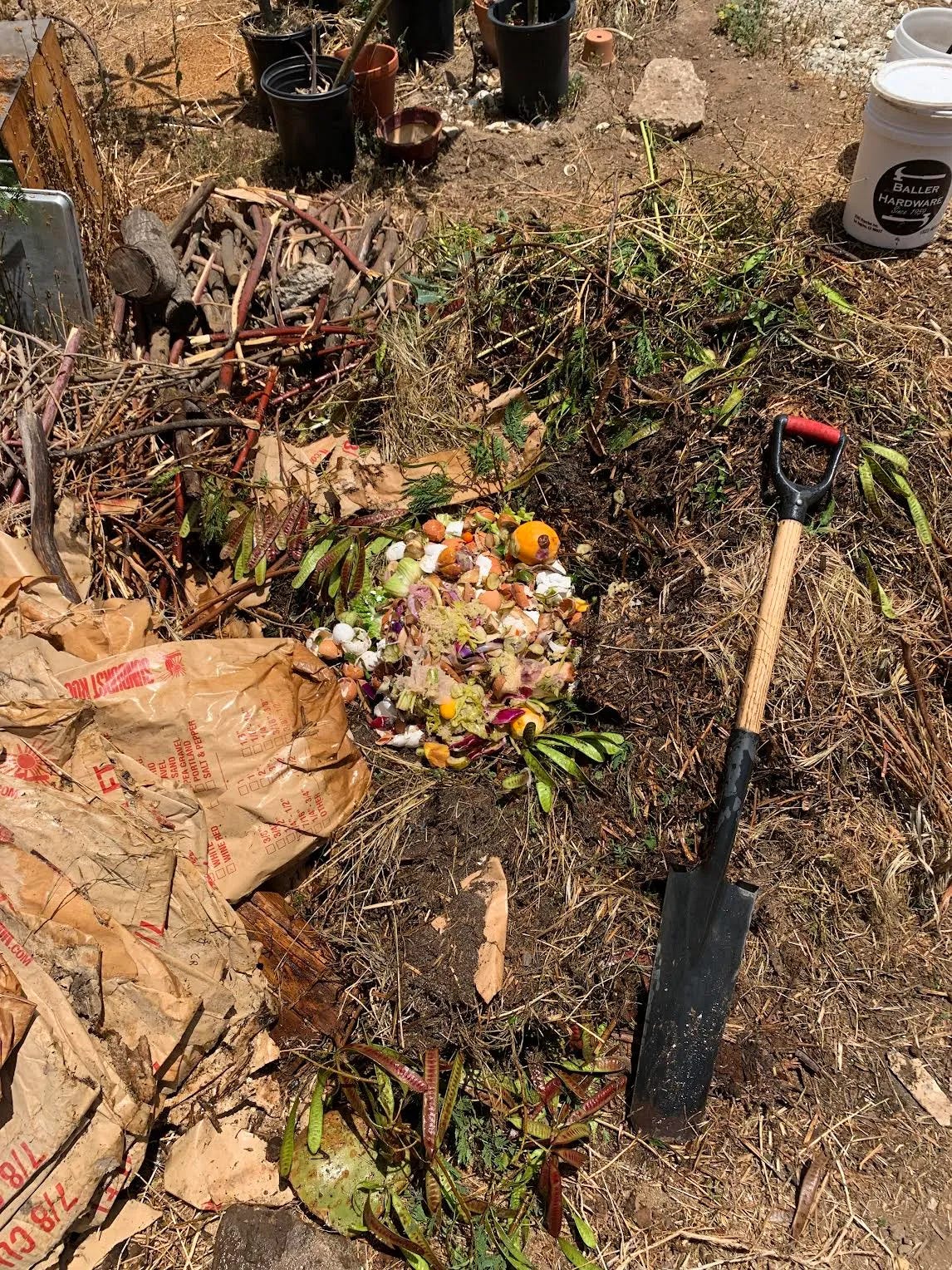- The Rot
- Posts
- You Can Compost That?!
You Can Compost That?!
LA Climate Week, a compost party, and one of my favorite rants
It’s almost Los Angeles Climate Week. As part of this year’s initiative, I’ll be joining the non-profit Seeds of Hope to throw a Compost Party in the garden where I volunteer .
I’ll also be teaching a class, titled “You Can Compost That?!”
This class is my well-intentioned attempt to puncture some of the mythologies that continue to permeate neighborhood composting, specifically in regards to what things you are or are not allowed to put in your pile. I will also be briefly covering a few things you should NOT compost, including most “biodegradable” products. (This is my crusade, my battle. The hill I will die on over-and-over again. )
Please join me by RSVPing here, it’s free.
For those who cannot attend or do not live in the Los Angeles area, I’m including this helpful (and hopefully not too cheeky) overview of the items you definitely should be putting in your compost heap, damn what the haters and purists have to say about it.

Citrus
Citrus peels are a great source of nitrogen, like any other food scrap They also offer micronutrients like phosphorus and potassium. Whether or not you can compost citrus peels is really a matter of proportion and personal preference, though. For example, adding loads of lemon peels at once may tilt your compost more toward acidity or attract fruit flies. You can avoid these potential consequences by adding peels in balanced proportions with other types of food scraps, covering them with a bulky carbon material like dead leaves, or drying them out before you add them.
Mold
Mold is a natural part of the decomposition process, like the other microbes that are already present in your pile. If you have moldy food—whether that’s fruits and vegetables or a hunk of bread—you can feel completely confident adding it to your pile. It will be right at home there.
Meat
You can compost meat. That doesn’t mean you should, of course. Adding meat to your compost bin will significantly increase the likelihood that it will attract animals. This can be a big problem if you live in an area with bears. It can also be problematic if you have neighbors and they don’t particularly like rats. If you do opt to compost meat, you may want to bury it in a (deep) hole and then cover it.
Finger Nails
Your finger nails are compostable. In fact, the next time you need to clip your nails, try doing it directly over your pile. Might as well not waste the nutrients, and it’ll give you a chance to check in with your pile at the same time.

Bread
Bread, being composed entirely of organic materials, is eminently compostable. Some gardeners suggest that you shouldn’t include it because it has a higher risk of attracting animals than other types of food scraps. The risk is yours to determine, but you should know that it is absolutely fine to compost bread—even if it’s moldy.
Eggshells
Eggshells are a great source of calcium and can help adjust your overall pH if your compost is on the acidic side. They do take a while to break down if you add them without crushing or grinding them first, though. My advice is to crunch them up in your palm before adding, or they may last forever in your pile.
Urine
Urine is fine for your compost and, being high in nitrogen, can even act as a handy activator for decomposition. Urine can be good for your pile if it’s heavy on high-carbon materials, like after adding an abundance of leaves after raking the yard. It can also be good if you’re just starting your pile and trying to get things going. I have more than once advised friends to pee on their piles for this purpose.

Hair
You can compost hair, although it may take a while to break down if you add it in large amounts. I compost my hair after haircuts and my dog’s fur after a good brushing. Both are fine. I read once about a man in Texas who devised a compost recipe made almost entirely of human hair and intended for a special breed of rose. This implies that, not only is it okay to compost hair, you could theoretically build an entire pile out of it. Ambitious.
Weeds
You can absolutely compost weeds. Weeds are just plants, like any other. However, if you don’t want to have to pluck sprouts from your finished compost, it’d be best to only compost them if you have a consistently hot pile. Personally, I don’t mind the additional maintenance that may be required if I am gardening with compost that has some weed seeds in it. All kinds of plants are always popping up in my beds for all kinds of reasons anyway. Some I have to get rid of, and others get to stay. It’s a part of gardening, and a few seeds in my compost aren’t going to make a meaningful difference. You are best off not composting diseased plants, though. Diseases, unlike weed seeds, cannot always be easily managed later if they survive the composting process.
Onions
It’s been suggested to me that you shouldn’t add onions to a compost pile because they smell particularly bad, and it’s said that their acidity can have a detrimental impact on the microbes in your pile. My feeling is that your microbes are quite resilient and will not be enduringly harmed by having to digest a couple onions. If their numbers are briefly suppressed, they will recover as you continue to add more and different types of material to the pile. Perhaps don’t make a compost entirely of onions, though.

Cooked Food
You can compost leftover food. I have heard from people who think they shouldn’t compost cooked food, because it contains oils, and oils can slow down the overall pace of decomposition in the pile. I simply don’t buy this. I do not think the dregs of your pasta dish will meaningfully impact your pile’s rate of breakdown. However, they may attract animals. So if you add them, be sure to bury them in the pile deep.
More soon,
Love,
Cass